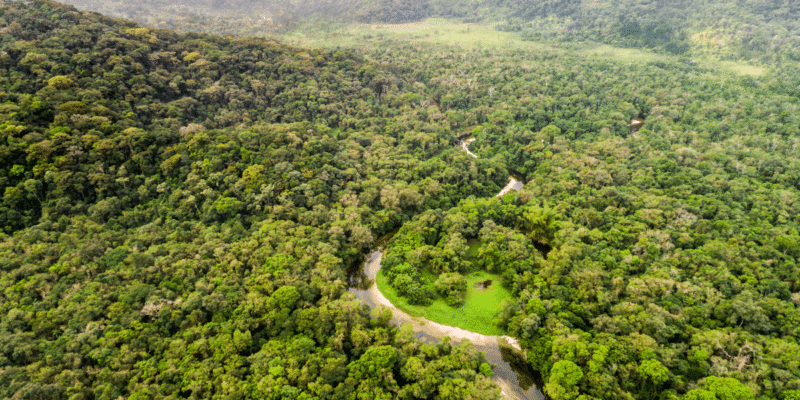
By Peter Makwanya THE rate at which developing countries are contributing to huge forest losses and land degradation makes all the discourse on conservation a farce. Their direct survival on forest resources and ecosystems has contributed not only to the shrinking of forests at an alarming rate, but also to loss and damage of the natural ecosystems through land degradations.
As the discourse of global warming has concentrated much on the burning of fossil fuels, developing countries need to realise that the destruction of land cover and its degradation is unlocking carbon at faster rate than imagined.
The most prized possession that Africa has at its disposal is its remaining forests, which at the same time are disappearing fast.
Forests are an integral part of the natural ecosystems, which continue to be altered and decline thereby disturbing their natural functions.
The disappearance and shrinking of forest cover has never been treated as an emergency climate crime.
That is why even illegal forest loggers come from far and wide to participate in forest plunder on the continent because they see nothing wrong in reducing the value of forest cover if the owners do not seem to care about their own forests.
The shrinking of African forests is running side by side subsequent land degradations due to uncontrolled and unregulated illegal mining activities currently defining the culture and practices of many countries.
Globally, deforestations and land degradations account for around 15% greenhouse gas emissions and Africa is in the forefront of committing this climate emergency crime.
- Chamisa under fire over US$120K donation
- Mavhunga puts DeMbare into Chibuku quarterfinals
- Pension funds bet on Cabora Bassa oilfields
- Councils defy govt fire tender directive
Keep Reading
Regrettably, African communities have not yet considered themselves as an extension to the natural ecosystems and that is why forest loss and degradation has become part of the normal daily routines.
Governments that have failed to provide employment opportunities to their citizens have unleashed their rogue youths to commit forest crimes in search of minerals with no regard to environmental sanity. Africa’s emissions are more land-based than burning of fossil fuels, that must be realised.
The value addition and co-benefits of maintaining forests and restoring degraded landscapes are ignored while there are sections which think that forests can be restored in the board rooms and on social media.
Forest destruction and land degradation need not to be treated in isolation from loss and damage to livelihood options for sustainable communities.
While meaningful action and sustainable restorations of the ecosystems are instrumental and key, human nature never ceases to amaze by continuing to act and dramatise everything. While publicity and limelight is good we need meaningful nature based solutions translating into sustainable climate actions and not drama.
Due to the fact that forest losses and degradations are intensifying, it means understanding, awareness raising, knowledge and information are yet to dawn upon everyone else.
We have communities who know forests best, those who have lived with forests side by side and are able to nurture and nourish them, but sadly they are not respected, empowered and are nowhere near the glitz of social media and publicity.
Human and nature should never be separated because together they constitute human kind determined by their ways of thinking, feeling and intrinsic duty to act.
In this regard, human behaviours that contribute to harm and damage of the ecosystems should never be part of our history.
Human narratives about conservation are key while those about plunder should be exposed and shamed.
Harmful stories and toxic narratives on the environment constitute climate crimes which require emergent attention.
This is important because we a have a history to tell future generations and that very fundamental history cannot be destroyed by greed, selfish tendencies and forest blindness. Communities need to be empowered to build strong infrastructure and institutions deriving value and inspiration from our conservation and participatory cultures.
The unsustainable human-induced actions contribute to habitat loss and climate change therefore, the earth, in its current state requires urgent healing.
Therefore, communication campaigns denigrating these unsustainable environmental behaviours are instrumental in order to adopt the idea that, once people understand the facts, they are informed and empowered to do things that will make a difference to the environment.
These communication pathways and engagements would make sense and help to reduce climate crimes.
Dealing with climate crimes would ease environmental breakdown and climate chaos that have negative repercussions on human nature and livelihood options for sustainable living.
Nomatter the justifications behind committing environmental crimes, the truth is there for everyone to see.
While humans can lie their way out, the environment does not lie and ecological crises are testimony to these machinations.
As such, communities require stronger forest rights in order to act as guardians and watchdogs of their community forests, deforestations and degradations would be minimised.
This would help African forests keep and maintain billions of tonnes of carbon underground.











